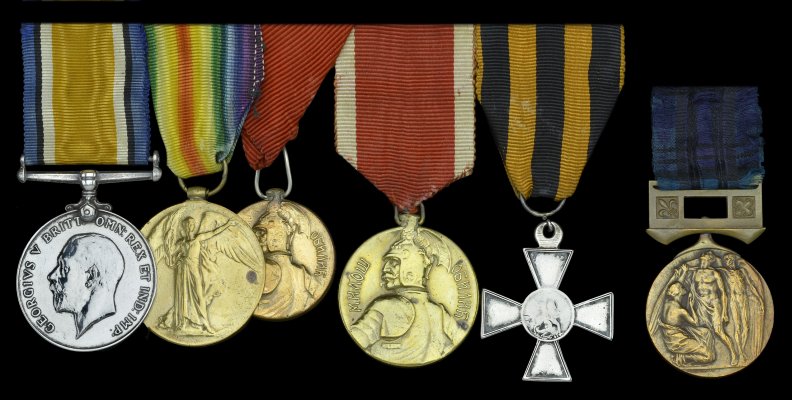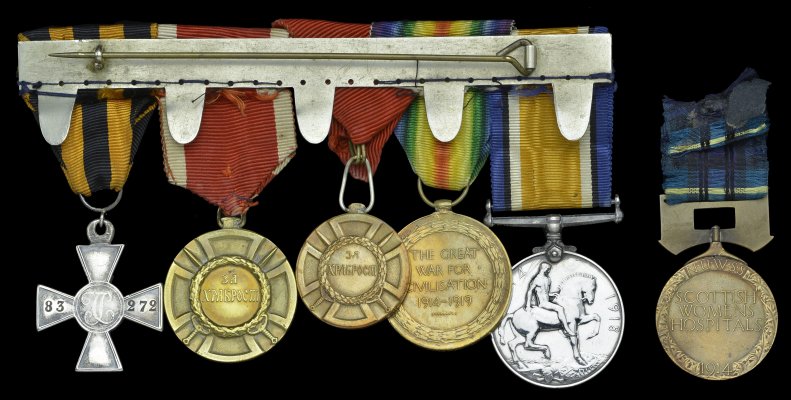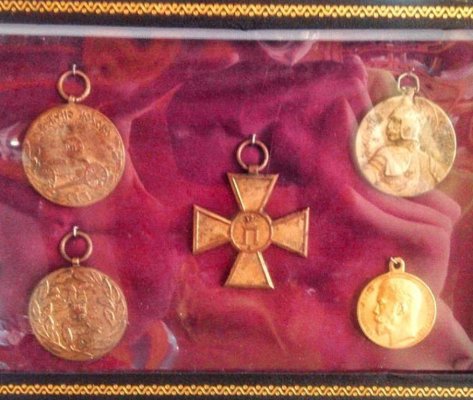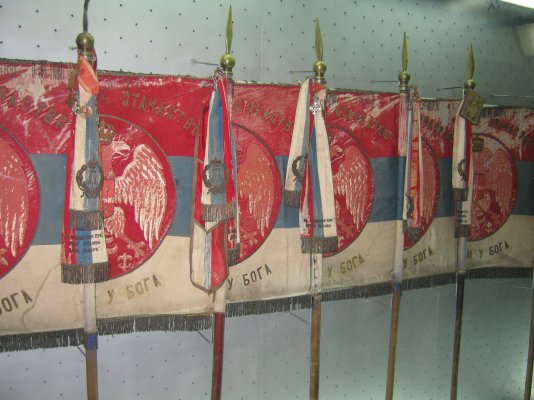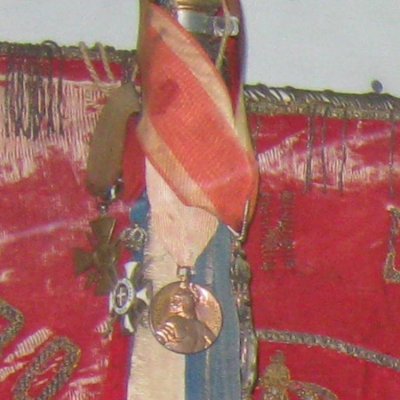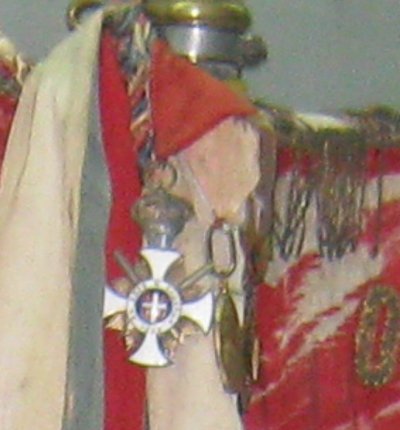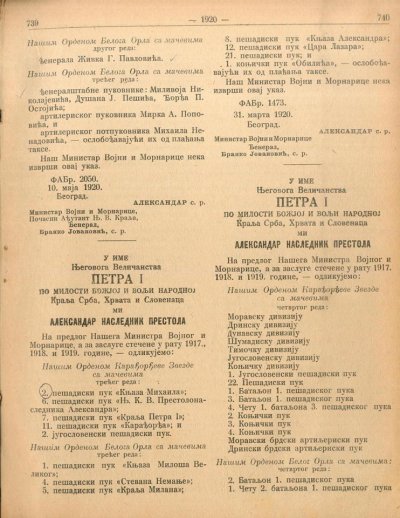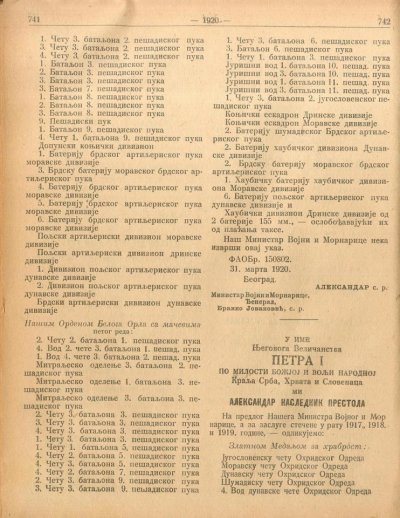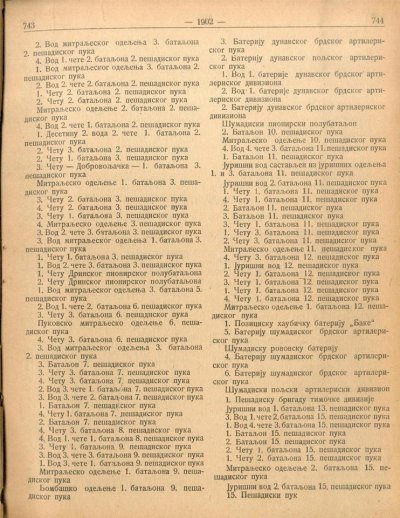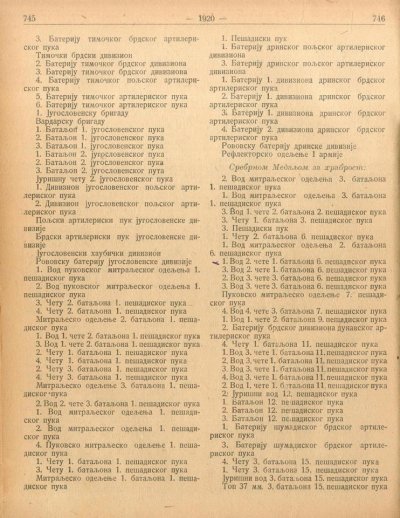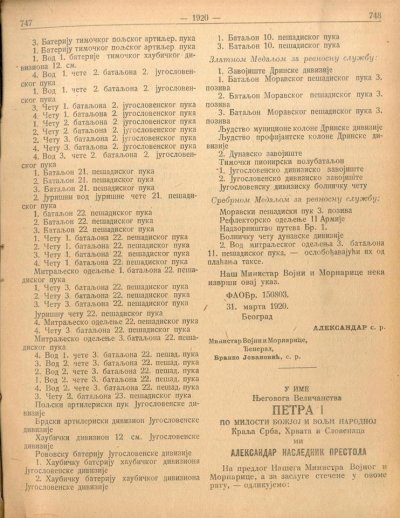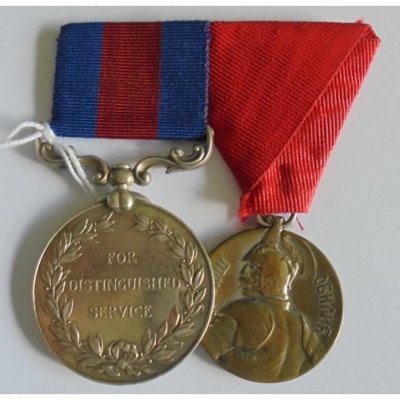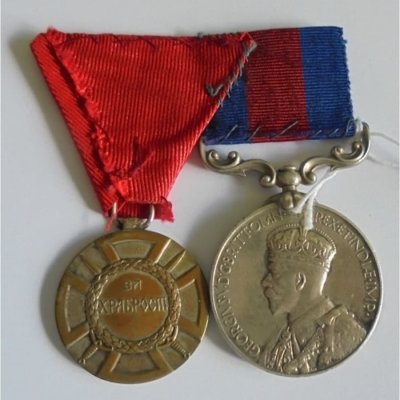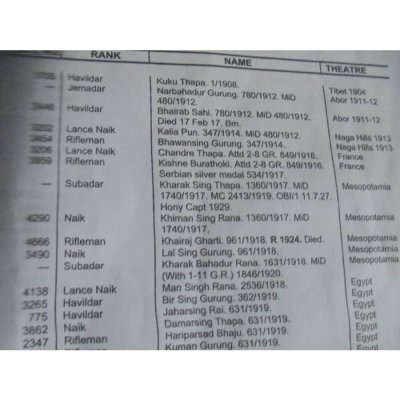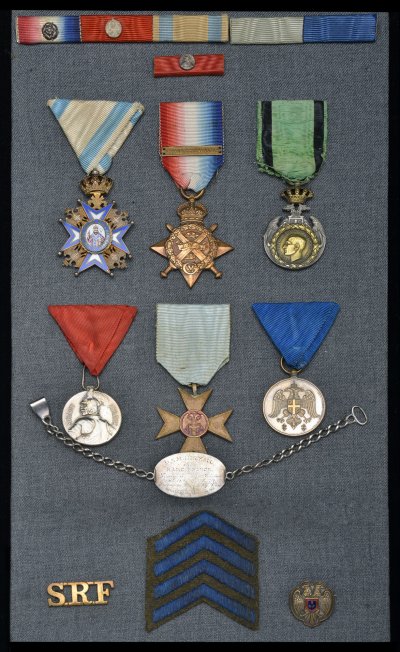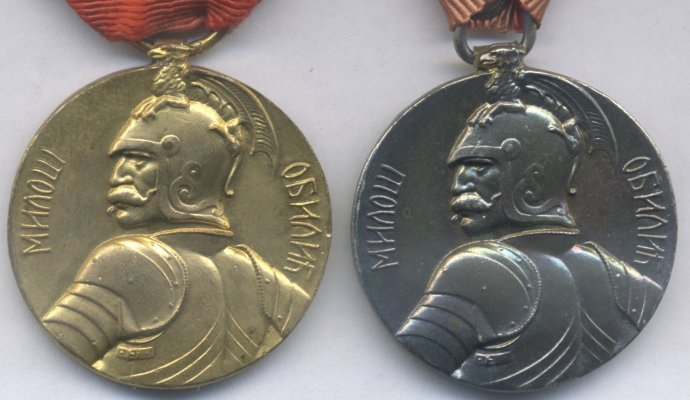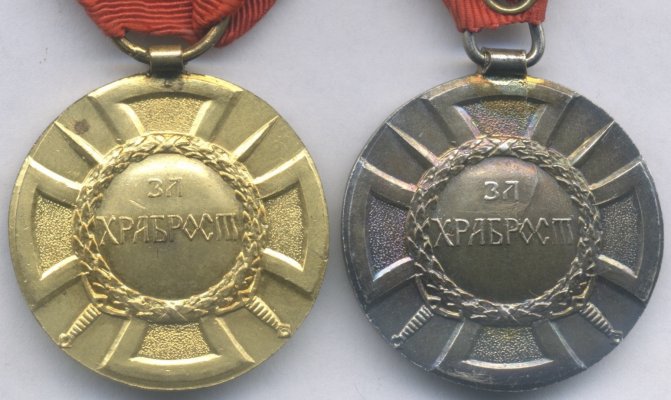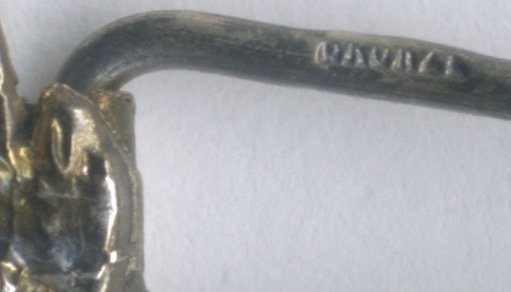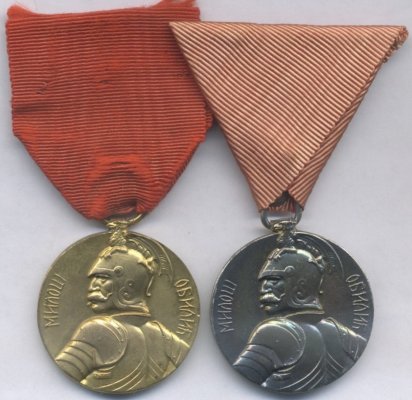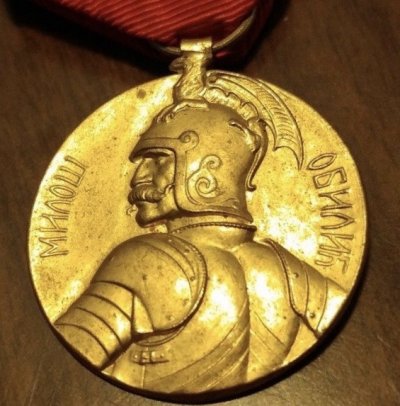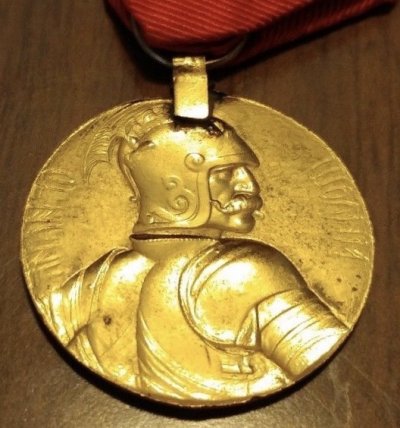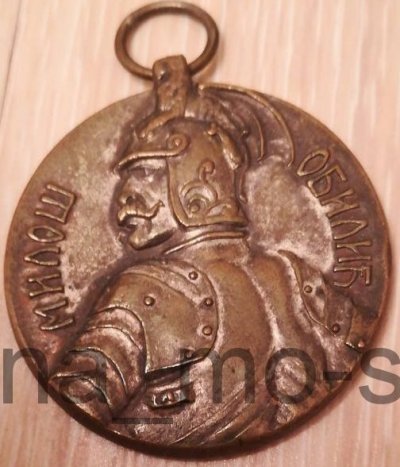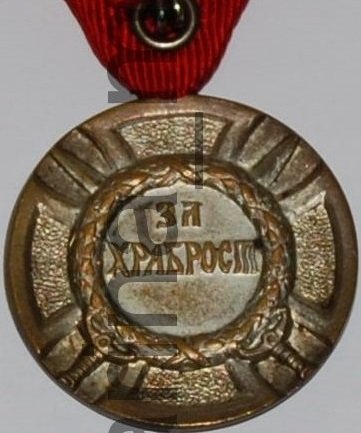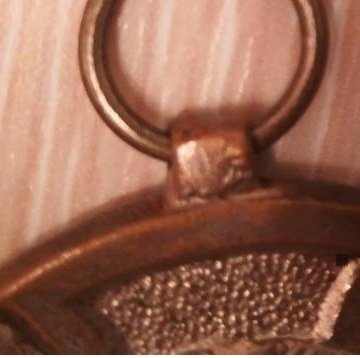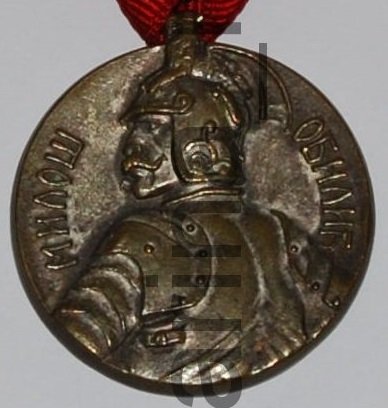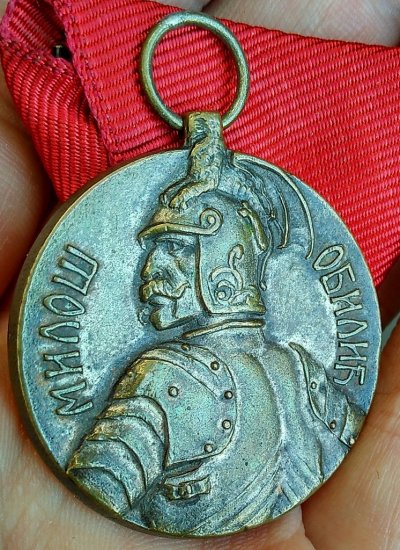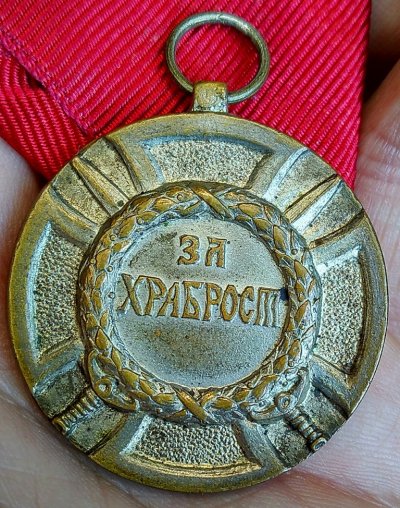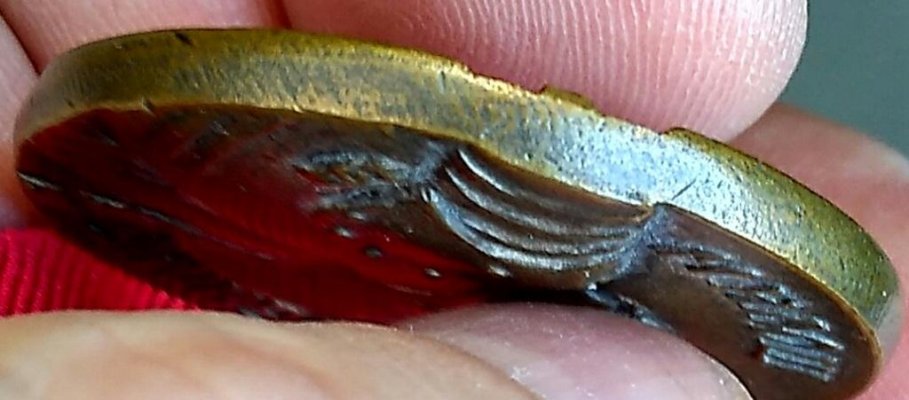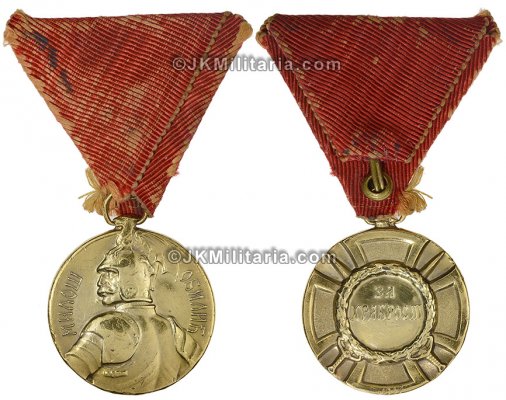2
Lot 245
To be Sold on: 10 May 2017
Estimate: £1,400 - £1,800
dnw.co.uk
An extremely rare Serbian Oblitch Bravery Medal in gold group of six awarded to Ambulance Driver G. S. Jensen, Scottish Women’s Hospitals, for her gallantry during the disastrous Serbian retreat of 1915
British War and Victory Medals (G. S. Jensen.); Serbia, Oblitch Bravery Medal, 30mm., bronze-gilt; Serbia, Oblitch Bravery Medal, 35mm., ‘gold’; Russia, St George’s Cross for Bravery, an early replacement silver issue, reverse officially numbered ‘83272’, lacking class designation and with unofficial suspension, with Scottish Women’s Hospitals 1914-18 Service Medal, official awards mounted as worn in this order, Russian award worn, remainder nearly very fine (6) £1400-1800
Footnote
Provenance: Fevyer Collection, November 1998.
Gladys Sophie Jensen served as an ambulance driver for the Scottish Women’s Hospitals unit during the Great War. She served in Serbia, and ‘at Nish, the horror of war soon became apparent to the staff as they entered a Serbian military hospital where they were to assist: “Every inch of space was occupied - it was impossible to pass between the beds, for the poor patients were mostly lying on the floor, some on hay and straw, and others on the bare stone or wooden floors. Sick and wounded lay crowded together - men who had just undergone the amputation of limbs; men in the grip of typhoid, dysentery, or frostbite...” The SWH quickly got to work and by the time of the Serbian retreat, four units were in operation...
The ultimate test of this adaptability would come in October 1915, when the combined strength of the Austrians, Germans and Bulgarians fell upon the Serbs. As their hosts crumbled into retreat, the fate of the hospitals varied. Inglis [Dr Elsie Inglis] and some others were captured, having elected to stay with their patients. Others took part in the terrible retreat across the mountains of Albania that cost the lives of some 200,000 Serbs.’ (Under The Devil’s Eye, Britain’s Forgotten Army At Salonika 1915-1918, A. Wakefield & S. Moody refers)
Jensen chose to take part in the retreat, and distinguished herself as follows, ‘daughter of Mr H. F. Jensen, 37 Stanley Avenue, Wallasey, has been awarded the Serbian Gold Medal for conspicuous bravery while serving as a motor-driver with the London units of the Scottish Women’s Hospital in Rumania.
The official account of his young lady’s bravery is as follows:
During the retreat from Medjidieh it was discovered that the whole convoy was running short of petrol, and this meant that some of the lorries and ambulances must be abandoned. Miss Gladys Jensen, one of the ambulance drivers, volunteered to return to the town with a car and bring back enough to enable the whole transport to continue their retreat. The commandant gave her consent, but Miss Jensen had just started, accompanied by a Serbian mechanic, a lad of about seventeen years of age, when a Serbian officer rode up and told the commandant, that it was madness for her to go, as already the Germans and Austrians were shelling the town. They tried in vain to stop Miss Jensen, but it was too late. This young girl - she was only about twenty two - faced death to save, rather than to abandon the ambulances, which were so much needed. Her perilous drive was crowned with success, and for this deed she was awarded the Gold Medal for Conspicuous Bravery.’ (copy of extract from a contemporary Wallasey newspaper refers)
Jensen was decorated accordingly (all the awards are confirmed), however, upon her return to the UK things eventually took a turn for the worst:
‘One of the only two women to be awarded the Gold Cross [sic] of Serbia, the Serbian ‘V.C.’, was at Liverpool County Court, today, granted her discharge in bankruptcy subject to a suspension of three months.
She is Gladys Sophie Jensen, who formerly carried on business in partnership as a dress designer in Bold Street, Liverpool and Wallasey. She is now a poultry farmer at Maidenhead.
For Miss Jensen, Mr T. D. Morgan said that before the War she was a physical training instructress in Margate. In 1915 she joined the Scottish Women’s Hospital Unit as an ambulance driver and took part in the Serbian retreat... In 1916 she was invalided home and was an invalid for some time.
She started the Liverpool business with the help of her father in partnership with a practical dress designer. It went well until 1925 when she had a serious riding accident. When she returned the business was going downhill. According to the Official Receiver’s report Miss Jensen was adjudicated bankrupt in 1928, the liabilities were £2,127.’ (newspaper cutting included with the lot refers)
Sold with a copy of Little Grey Partridge - First World War Diary of Isobel Ross who served with the Scottish Women’s Hospitals unit in Serbia, and copied research.
Lot 245
To be Sold on: 10 May 2017
Estimate: £1,400 - £1,800
dnw.co.uk
An extremely rare Serbian Oblitch Bravery Medal in gold group of six awarded to Ambulance Driver G. S. Jensen, Scottish Women’s Hospitals, for her gallantry during the disastrous Serbian retreat of 1915
British War and Victory Medals (G. S. Jensen.); Serbia, Oblitch Bravery Medal, 30mm., bronze-gilt; Serbia, Oblitch Bravery Medal, 35mm., ‘gold’; Russia, St George’s Cross for Bravery, an early replacement silver issue, reverse officially numbered ‘83272’, lacking class designation and with unofficial suspension, with Scottish Women’s Hospitals 1914-18 Service Medal, official awards mounted as worn in this order, Russian award worn, remainder nearly very fine (6) £1400-1800
Footnote
Provenance: Fevyer Collection, November 1998.
Gladys Sophie Jensen served as an ambulance driver for the Scottish Women’s Hospitals unit during the Great War. She served in Serbia, and ‘at Nish, the horror of war soon became apparent to the staff as they entered a Serbian military hospital where they were to assist: “Every inch of space was occupied - it was impossible to pass between the beds, for the poor patients were mostly lying on the floor, some on hay and straw, and others on the bare stone or wooden floors. Sick and wounded lay crowded together - men who had just undergone the amputation of limbs; men in the grip of typhoid, dysentery, or frostbite...” The SWH quickly got to work and by the time of the Serbian retreat, four units were in operation...
The ultimate test of this adaptability would come in October 1915, when the combined strength of the Austrians, Germans and Bulgarians fell upon the Serbs. As their hosts crumbled into retreat, the fate of the hospitals varied. Inglis [Dr Elsie Inglis] and some others were captured, having elected to stay with their patients. Others took part in the terrible retreat across the mountains of Albania that cost the lives of some 200,000 Serbs.’ (Under The Devil’s Eye, Britain’s Forgotten Army At Salonika 1915-1918, A. Wakefield & S. Moody refers)
Jensen chose to take part in the retreat, and distinguished herself as follows, ‘daughter of Mr H. F. Jensen, 37 Stanley Avenue, Wallasey, has been awarded the Serbian Gold Medal for conspicuous bravery while serving as a motor-driver with the London units of the Scottish Women’s Hospital in Rumania.
The official account of his young lady’s bravery is as follows:
During the retreat from Medjidieh it was discovered that the whole convoy was running short of petrol, and this meant that some of the lorries and ambulances must be abandoned. Miss Gladys Jensen, one of the ambulance drivers, volunteered to return to the town with a car and bring back enough to enable the whole transport to continue their retreat. The commandant gave her consent, but Miss Jensen had just started, accompanied by a Serbian mechanic, a lad of about seventeen years of age, when a Serbian officer rode up and told the commandant, that it was madness for her to go, as already the Germans and Austrians were shelling the town. They tried in vain to stop Miss Jensen, but it was too late. This young girl - she was only about twenty two - faced death to save, rather than to abandon the ambulances, which were so much needed. Her perilous drive was crowned with success, and for this deed she was awarded the Gold Medal for Conspicuous Bravery.’ (copy of extract from a contemporary Wallasey newspaper refers)
Jensen was decorated accordingly (all the awards are confirmed), however, upon her return to the UK things eventually took a turn for the worst:
‘One of the only two women to be awarded the Gold Cross [sic] of Serbia, the Serbian ‘V.C.’, was at Liverpool County Court, today, granted her discharge in bankruptcy subject to a suspension of three months.
She is Gladys Sophie Jensen, who formerly carried on business in partnership as a dress designer in Bold Street, Liverpool and Wallasey. She is now a poultry farmer at Maidenhead.
For Miss Jensen, Mr T. D. Morgan said that before the War she was a physical training instructress in Margate. In 1915 she joined the Scottish Women’s Hospital Unit as an ambulance driver and took part in the Serbian retreat... In 1916 she was invalided home and was an invalid for some time.
She started the Liverpool business with the help of her father in partnership with a practical dress designer. It went well until 1925 when she had a serious riding accident. When she returned the business was going downhill. According to the Official Receiver’s report Miss Jensen was adjudicated bankrupt in 1928, the liabilities were £2,127.’ (newspaper cutting included with the lot refers)
Sold with a copy of Little Grey Partridge - First World War Diary of Isobel Ross who served with the Scottish Women’s Hospitals unit in Serbia, and copied research.

